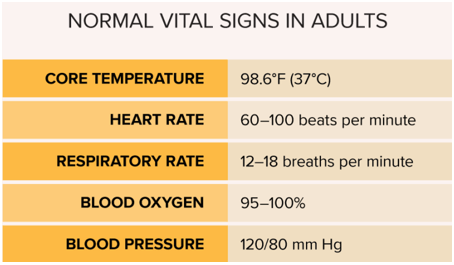The practical nurse (PN) finds a postoperative client lying in bed with an unsecured surgical dressing as seen in the picture. After reinforcing the dressing, which follow-up assessment is most important for the PN to implement?
Vital sign measurement.
Fluid volume intake and output.
Volume of peripheral pulses.
Incisional pain scale rating.
The Correct Answer is A
This is the most important follow-up assessment for the PN to implement because it can detect signs of bleeding, infection, or shock that may result from the unsecured surgical dressing. The PN should monitor the client's blood pressure, pulse, temperature, and respiratory rate and report any abnormal changes.

Nursing Test Bank
Naxlex Comprehensive Predictor Exams
Related Questions
Correct Answer is D
Explanation
The correct answer is Choice D. What are the voices uttering?
Choice A rationale:
While it is essential to assess how the client copes with auditory hallucinations, asking this question alone does not provide specific information about the content of the hallucinations. Knowing what the voices are saying is vital in understanding the nature and potential impact of the hallucinations.
Choice B rationale:
Knowing when the voices are most disturbing can provide some insights into the pattern of the auditory hallucinations. However, this information alone may not fully address the client's current experience or their response to the hallucinations.
Choice C rationale:
Inquiring about which medication works best is important, but it should come after understanding the nature of the hallucinations. Medication management is a crucial aspect of treating schizophrenia, but gathering information about the content of the hallucinations helps in formulating an appropriate treatment plan.
Choice D rationale:
The correct choice. Knowing what the voices are uttering is essential in assessing the severity and potential impact of the auditory hallucinations on the client's well-being. This information will guide the healthcare team in providing targeted interventions and support to manage the symptoms effectively.
Correct Answer is D
Explanation
This is the best action that describes the responsibility of the PN because it ensures that the client has given informed consent for the invasive examination and that the consent form is valid and documented. The PN should verify that the provider has explained the examination, its risks and benefits, and alternative options to the client and that the client has agreed to proceed.
A. Explaining the examination and asking the client to sign the consent form is not the responsibility of the PN but of the provider who will perform the examination.
B. Obtaining the medical record for the correct signed consent form prior to the examination is not enough to ensure informed consent and may not involve any interaction with the client.
C. Asking if the client understands the exam and why the consent form must be signed is not enough to ensure informed consent and may not address any questions or concerns that the client may have.
Whether you are a student looking to ace your exams or a practicing nurse seeking to enhance your expertise , our nursing education contents will empower you with the confidence and competence to make a difference in the lives of patients and become a respected leader in the healthcare field.
Visit Naxlex, invest in your future and unlock endless possibilities with our unparalleled nursing education contents today
Report Wrong Answer on the Current Question
Do you disagree with the answer? If yes, what is your expected answer? Explain.
Kindly be descriptive with the issue you are facing.
